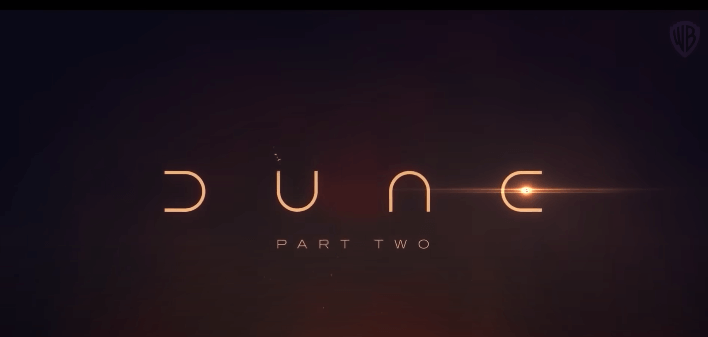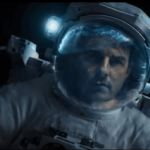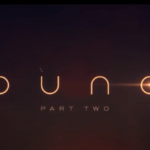
Introduction
Welcome to the enchanting world of the Dune Film Series, a cinematic journey that transcends time and space. In this comprehensive guide, we’ll delve into the history, intricate details, and the impact of the Dune franchise. Whether you’re a seasoned fan or a curious newcomer, join us as we unravel the mystique behind this iconic series.
History of Dune Film Adaptations
The Dune saga’s journey to the silver screen has been as epic as the narrative it seeks to portray. Initial attempts to adapt Frank Herbert’s masterpiece faced numerous challenges, grappling with the complexity of the source material. It wasn’t until 1984 that the first full-fledged Dune film emerged, directed by David Lynch.
Despite its valiant effort, the 1984 adaptation garnered mixed reviews. It struggled to capture the depth of Herbert’s universe adequately. Technological limitations of the time hindered the portrayal of the expansive landscapes and intricate political intrigue central to the Dune storyline.
Fast forward to 2021, and director Denis Villeneuve embarked on a daring mission to bring Dune back to the big screen. The modern adaptation not only embraced advancements in cinematic technology but also managed to stay truer to the source material. The result was a visually stunning and emotionally resonant experience that left audiences hungry for more.
Overview of the Dune Universe
Before we dive into the film adaptations, let’s set the stage with a brief overview of the Dune universe. Frank Herbert’s creation is a tapestry of intricate politics, complex characters, and a unique blend of sci-fi and fantasy elements. At its core, Dune explores themes of power, religion, and ecological disaster, all set against the backdrop of the desert planet Arrakis.
Herbert’s novels introduce us to the noble House Atreides, the enigmatic spice melange, and the prophetic figure known as the Kwisatz Haderach. Understanding these key elements is crucial to fully appreciate the depth and nuance brought to life on the big screen.
Dune Film Series: A Cinematic Journey
Dune (1984)
Summary: The 1984 adaptation of Dune attempted to condense the vast narrative into a feature-length film. While it captured certain aspects of the story, the limitations of the time resulted in a film that left some fans wanting more.
Reception: The film received mixed reviews, with criticisms aimed at its pacing and the difficulty of translating Herbert’s dense material to a mainstream audience.
Differences from Source Material: Noteworthy divergences from the novel, including altered character arcs and streamlined plotlines.
Dune (2021)
In-depth Analysis: Denis Villeneuve’s 2021 adaptation took a bold approach, splitting Herbert’s first novel into two parts. This decision allowed for a more detailed exploration of the narrative, garnering praise for its faithfulness to the source material.
Cast and Crew: A stellar ensemble cast, including Timothée Chalamet as Paul Atreides and Zendaya as Chani, brought the characters to life. Villeneuve’s direction and Hans Zimmer’s score added layers of emotion and tension.
Comparisons: Contrasting the 2021 version with its predecessor and examining how both interpretations contribute to the Dune legacy.
Stay tuned as we journey deeper into the making of the 2021 adaptation in the next section, exploring the challenges faced and the creative decisions that shaped this modern cinematic masterpiece.
Behind the Scenes: The Making of Dune (2021)
The production of the 2021 Dune adaptation was no small feat, requiring meticulous attention to detail and a commitment to honoring Herbert’s legacy. Let’s venture into the behind-the-scenes realm and explore the making of this cinematic masterpiece.
Filming Locations, Set Designs, and Special Effects
Denis Villeneuve and his team embarked on a global journey to bring Arrakis to life. Filming locations spanned from the deserts of Jordan to the shores of Norway, capturing the vastness and diversity of the Dune universe. The intricately designed sets, including the grandeur of House Atreides and the spice-rich landscapes of Arrakis, showcase the dedication to visual authenticity.
Special effects played a pivotal role in realizing Herbert’s vision. From the colossal sandworms to the mystical spice visions, cutting-edge technology seamlessly blended with practical effects to craft a visually stunning experience. The attention to detail in every frame speaks to the commitment to delivering a Dune adaptation that not only satisfies long-time fans but also captivates a new generation of viewers.
Challenges Faced During Production
Adapting a complex narrative like Dune posed numerous challenges. Villeneuve, known for his meticulous approach, faced the task of condensing the rich source material into a coherent and engaging cinematic experience. Striking a balance between staying true to the novels and catering to a broader audience required careful navigation.
Additionally, the COVID-19 pandemic introduced unforeseen hurdles. Delays in production schedules and the need for safety protocols added an extra layer of complexity. However, the commitment of the cast and crew prevailed, resulting in a film that not only met expectations but exceeded them.
Interviews with Key Cast and Crew Members
To gain deeper insights into the making of Dune (2021), let’s hear from the key players involved. Denis Villeneuve’s vision was complemented by the stellar performances of the cast, including Timothée Chalamet, Rebecca Ferguson, and Oscar Isaac. Cinematographer Greig Fraser and composer Hans Zimmer contributed their unique talents to enhance the visual and auditory aspects of the film.
In interviews, the cast and crew share their experiences, shedding light on the challenges faced, the artistic choices made, and their collective passion for bringing Dune to a new generation of cinema-goers.
As we move forward, our journey will take us into the heart of the Dune fandom and community, exploring the passionate discussions, fan theories, and the online platforms that serve as a hub for Dune enthusiasts.
Future of the Dune Film Series
With the success of the 2021 adaptation, the Dune Film Series has sparked renewed interest in Herbert’s universe. As fans eagerly anticipate potential sequels or spin-offs, the future of the series holds exciting possibilities.
Potential Sequels or Spin-Offs
Denis Villeneuve’s decision to split Herbert’s first novel into two parts suggests a commitment to delving deeper into the narrative. The potential for sequels offers an opportunity to explore the later novels in the Dune series, introducing new characters, conflicts, and dimensions to the cinematic adaptation.
Updates on Upcoming Dune-Related Projects
Beyond the core film series, fans can look forward to additional Dune-related projects that expand the universe. Whether in the form of prequels, animated series, or immersive experiences, the Dune legacy is poised for further exploration.
Speculations and Fan Expectations
The Dune community is rife with speculations and fan expectations for the future. From the portrayal of iconic characters to the interpretation of pivotal moments, enthusiasts eagerly anticipate how the cinematic journey will unfold.
As we embark on this speculative journey, it’s clear that the Dune Film Series has not only reinvigorated interest in Herbert’s novels but also set the stage for a cinematic legacy that resonates across generations.
Diving into the Dune Novels
To truly grasp the depth and nuance of the Dune universe, we encourage readers to explore Frank Herbert’s original novels. While the films offer a visual feast, the novels provide an immersive experience into the intricate layers of politics, philosophy, and ecology that define Herbert’s masterwork.
How the Books Compare to the Film Adaptations
While the films capture the essence of Dune, the novels delve even deeper into the inner thoughts of characters, the complexities of political maneuvering, and the ecological intricacies of Arrakis. Reading the novels enhances the appreciation for the meticulous world-building that Herbert undertook.
Recommendations for Readers New to the Dune Universe
For those venturing into the Dune novels for the first time, consider starting with “Dune,” the foundational work that lays the groundwork for the entire series. Take the time to savor the rich prose, absorb the philosophical undertones, and immerse yourself in the captivating world Herbert crafted.
As we conclude our journey through the Dune Film Series and the broader universe it inhabits, we invite readers to share their thoughts, insights, and experiences in the comments below. Your engagement adds another layer to the ever-expanding mystique of Dune.
Conclusion
In this comprehensive guide to the Dune Film Series, we’ve traversed the history, delved into the intricacies of the cinematic adaptations, explored the vibrant Dune community, and contemplated the series’ impact on popular culture. While criticisms and praises echo in the vastness of Arrakis, the enduring appeal of Dune lies in its ability to captivate, challenge, and inspire.
As we eagerly await the unfolding chapters of the Dune Film Series and the potential revelations within Herbert’s novels, the mystique of this epic saga continues to beckon audiences on a journey beyond the stars.
May your spice journey be everlasting, and may the sandworms of creativity guide you through the ever-shifting dunes of cinematic wonder.







